5 Irresistible Balsamic Sauce Recipes for Pork Chops That’ll Make Your Taste Buds Dance
If you’ve ever wondered how to elevate a humble pork chop into a global flavor sensation, look no further than balsamic sauce. This sweet-tangy elixir from Italy has traveled far beyond its homeland and found a home in kitchens across the globe. In this article, we’re taking a deep dive into the world of balsamic sauce for pork chops, mixing practical tips with a sprinkle of humor and some serious spice knowledge.
Table of Contents
- Why Balsamic? The Sweet-Tangy Star of the Show
- Classic Balsamic Reduction: A Timeless Favorite
- Global Spice Twists: From Thai Heat to Moroccan Magic
- Quick Tips for the Perfect Balsamic Glaze Every Time
- Pairing Balsamic-Infused Pork Chops with Sides That Shine
- Braising, Grilling, or Pan-Seared? Exploring Cooking Methods
- Visual Guide: Balsamic Sauce Texture & Color Comparison
- Final Thoughts on Mastering Balsamic Sauce for Pork Chops
Why Balsamic? The Sweet-Tangy Star of the Show
Balsamic vinegar isn’t just a kitchen staple; it’s a culinary legend. Originating from Modena, Italy, traditional balsamic vinegar is aged for years—sometimes even decades—in wooden barrels, giving it that complex flavor profile we all know and love. But let’s be real: not everyone can afford the $100-per-ounce artisan stuff. Luckily, even regular balsamic vinegar can transform your pork chops when reduced properly.
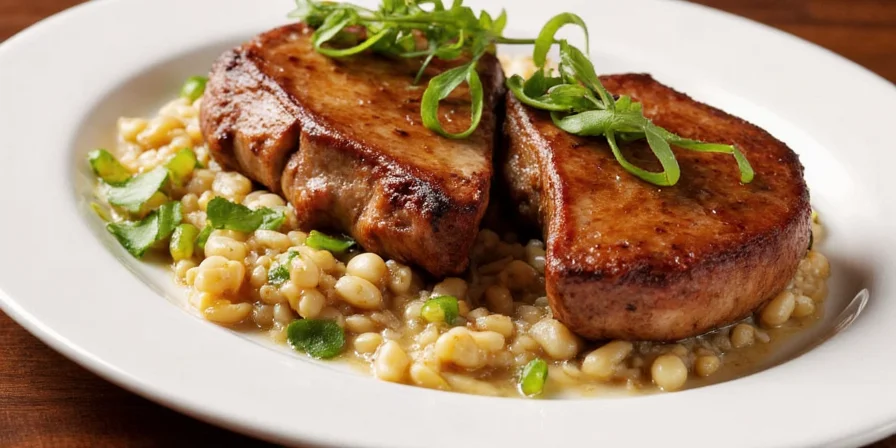
The Science Behind the Shine
When you reduce balsamic vinegar by simmering it over low heat, something magical happens: water evaporates, sugars caramelize, and the flavors intensify. This gives you a thick, glossy glaze that clings beautifully to meat. The balance between acidity and sweetness makes it the perfect complement to rich, fatty cuts like pork chops.
Classic Balsamic Reduction: A Timeless Favorite
Sometimes, simple is best. Here's a go-to recipe for a classic balsamic reduction:
- 1 cup balsamic vinegar
- 1 tbsp brown sugar (optional, but adds depth)
- 1 clove garlic, minced (for extra punch)
- A splash of honey or maple syrup (to smooth out the edges)
Steps:
- Pour the vinegar into a small saucepan.
- Bring to a gentle simmer over medium-low heat.
- Let it bubble away for about 15–20 minutes until it reduces by half and coats the back of a spoon.
- Season with salt and pepper as needed.
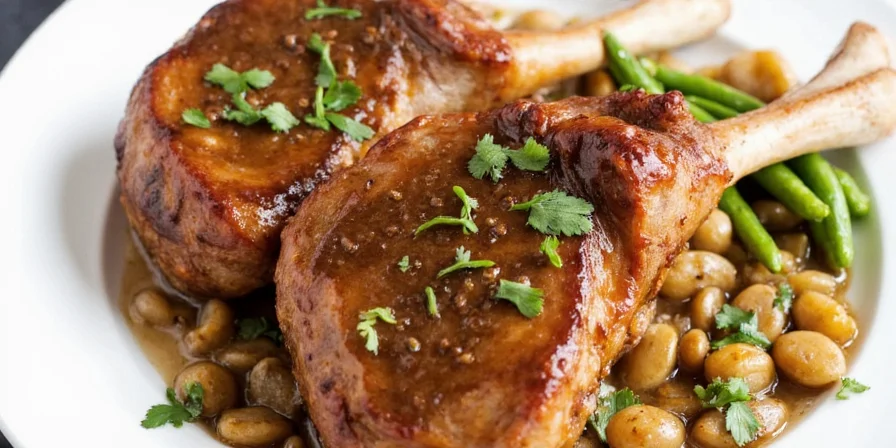
Global Spice Twists: From Thai Heat to Moroccan Magic
Now that we’ve nailed the basics, let’s talk spices! Why stick to one culture when the world is full of flavor possibilities? Here are five unique takes on balsamic sauce for pork chops inspired by Global Spice Traditions:
1. Thai-Inspired Lemongrass Balsamic
- Add chopped lemongrass stalk
- Grated ginger and lime zest
- Fish sauce for umami boost
2. Smoky Spanish Paprika Balsamic
- Smoked paprika
- Orange zest
- Crushed rosemary
3. Indian Curry Balsamic
- Garam masala
- Chopped fresh cilantro
- Coconut milk for creaminess
4. Mexican Chipotle Balsamic
- Chipotle in adobo (for smoky heat)
- Lime juice and zest
- Coriander seeds toasted and ground
5. Moroccan Ras El Hanout Balsamic
- Ras el hanout blend
- Orange blossom water (just a drop!)
- Apricot jam for a fruity kick
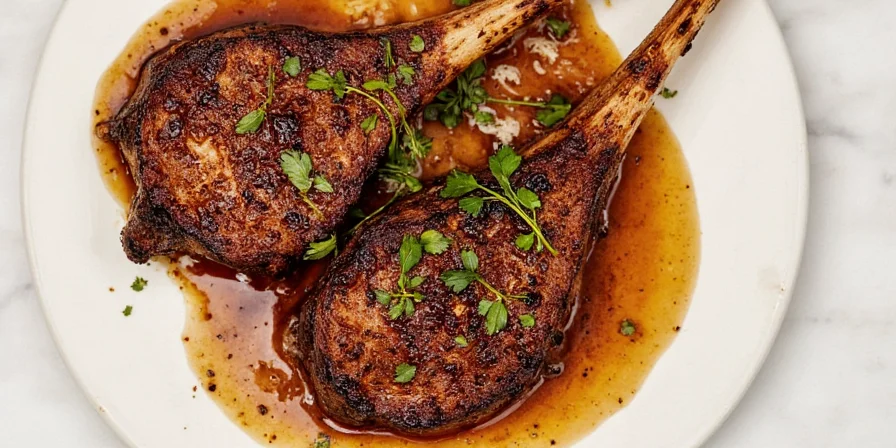
Quick Tips for the Perfect Balsamic Glaze Every Time
Here are some pro tips to ensure your balsamic sauce turns out perfectly every time:
- Use a heavy-bottomed pan: It distributes heat more evenly and prevents scorching.
- Don’t rush the reduction: Low and slow is the way to go.
- Stir occasionally, not constantly: You want the vinegar to concentrate, not break down.
- Strain it if using herbs or garlic: For a silky finish, especially if serving drizzled over a plated dish.
- Store in the fridge: It keeps for up to two weeks and only gets better!
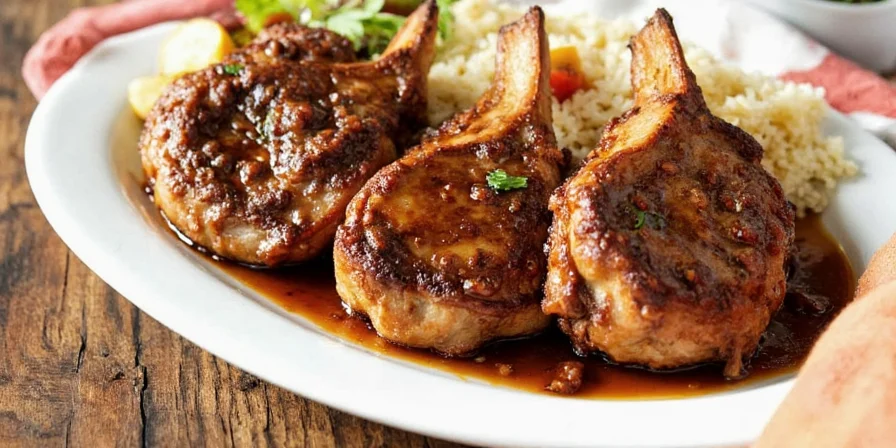
Pairing Balsamic-Infused Pork Chops with Sides That Shine
What goes with pork chops and balsamic sauce? Here are some great matches:
| Side Dish | Flavor Profile | Why It Works |
|---|---|---|
| Mashed Sweet Potatoes | Creamy + Earthy | Complements the tanginess and adds richness. |
| Roasted Brussels Sprouts | Nutty + Caramelized | Contrasts texture and adds depth. |
| Quinoa Salad with Lemon & Herbs | Fresh + Bright | Cleanses the palate after each rich bite. |
| Polenta with Parmesan | Buttery + Savory | Perfect base to soak up that balsamic goodness. |
Braising, Grilling, or Pan-Seared? Exploring Cooking Methods
How you cook your pork chops can affect how well the balsamic sauce integrates with the meat. Here’s a quick breakdown:
- Pan-Seared: Ideal for quick cooking and allows you to deglaze the pan with balsamic sauce post-sear.
- Grilled: Adds smokiness. Brush the sauce on during the last few minutes of grilling to avoid burning the sugars.
- Braised: Best for fall-off-the-bone tenderness. Use balsamic as part of the braising liquid for deep flavor penetration.
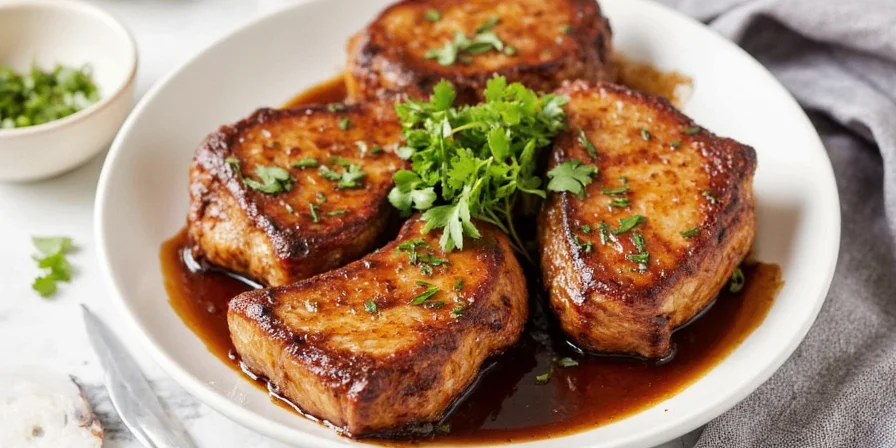
Visual Guide: Balsamic Sauce Texture & Color Comparison
Want to know what your sauce should look like at different stages? Here’s a handy visual comparison:
| Stage | Texture | Color | Taste Notes |
|---|---|---|---|
| Raw Vinegar | Thin & watery | Dark reddish-brown | Sharp, acidic |
| Light Reduction | Coats the spoon slightly | Deep mahogany | Balanced tart-sweet |
| Medium Reduction | Thick & syrupy | Ebony black hints | Intense, caramelized |
| Heavy Reduction | Very thick, almost molasses-like | Nearly black | Bitter edge if overdone |
Final Thoughts on Mastering Balsamic Sauce for Pork Chops
Balsamic sauce for pork chops isn’t just a recipe—it’s an experience. Whether you're keeping it classic or experimenting with global spices, this versatile condiment can transform any meal into a celebration of flavor. Don’t be afraid to play with ingredients, adjust the sweetness, and most importantly, have fun with it. After all, food should taste good—and make you feel even better.
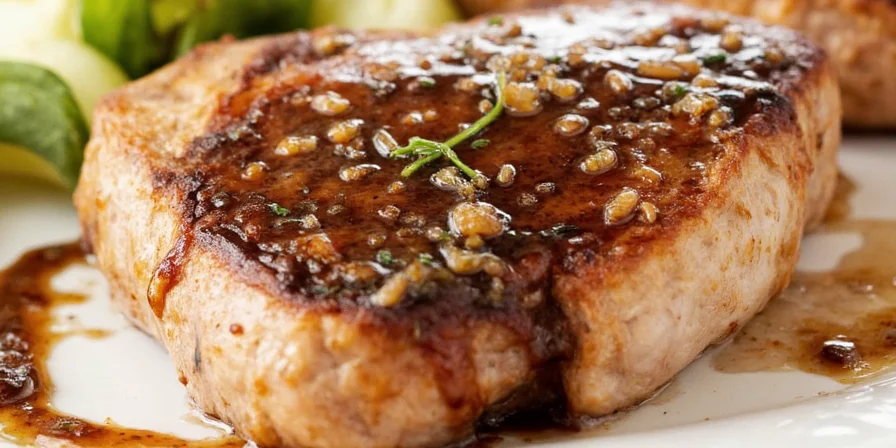
So grab that bottle of balsamic, fire up the stove, and get ready to impress your taste buds—or your dinner guests—with these sensational sauces. Your pork chops will thank you, and so will your stomach!

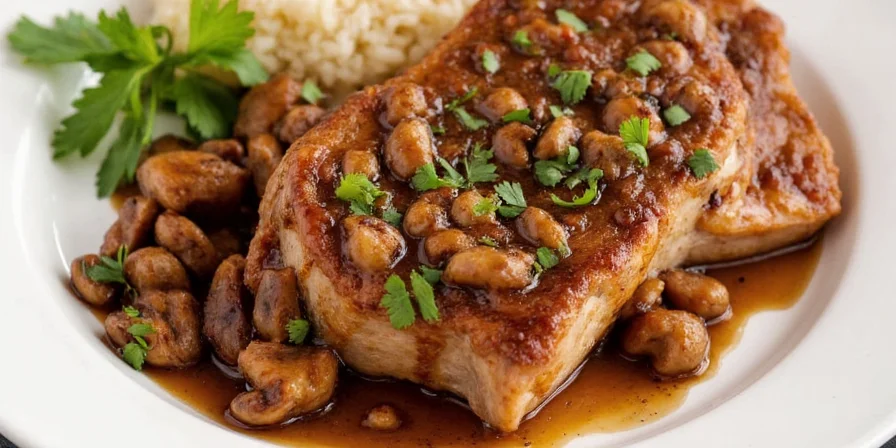









 浙公网安备
33010002000092号
浙公网安备
33010002000092号 浙B2-20120091-4
浙B2-20120091-4